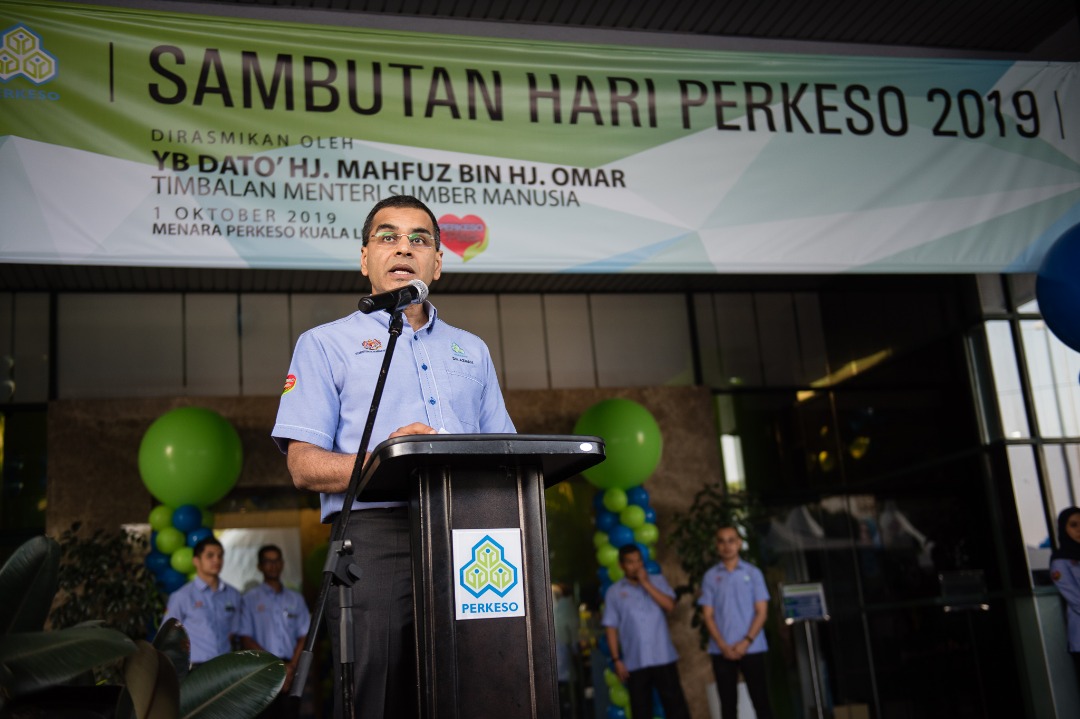KUALA LUMPUR, Feb 3 — The Social Security Organisation (Socso) said it can’t be the only group to provide free dialysis, after facing backlash for restricting eligibility for the treatment.
Socso deputy chief executive (operations) John Riba Marin noted that the social security fund is the largest provider of subsidised dialysis treatments in the country, covering nearly 18,000 patients this year, with more and more applications coming in.
He added that the financing of haemodialysis is a national issue that affects all end-stage renal patients in the country, with treatment costs estimated to continue to escalate as well.
“The solution of this health financing issue must, therefore, be looked at by all health, welfare and social organisations in the country rather than a focus on a single entity such as Socso,” he said in response to media reports on the issue.
Dialysis treatment is provided free-of-charge at any Socso dialysis panel centres, government hospitals, private dialysis centres, or facilities run by non-government organisations (NGOs), while those who seek treatment at non-Socso dialysis panel centres can expense it to Socso.
According to a recent circular by Socso, however, the eligibility for end-stage renal disease patients getting free dialysis covered by Socso is now tied to the respective new applicant’s tenure and quantum of contribution to the fund, effective last January 10.
The new conditions, as listed in a January 20 memo to all Socso state directors and branch managers, state, among others, that insured individuals must have paid at least 24 months’ worth of monthly deductions to Socso within 40 consecutive months before their invalidity notice is received.
Another condition requires that their monthly deductions paid comprise at least one-third of their first deduction upon entering the scheme until their invalidity notice is received, a move that was slammed by the Malaysian Trades Union Congress (MTUC) and lawmakers.
MTUC secretary-general J. Solomon, last Friday, said the move would limit access or outrightly deny “scores” of disadvantaged contributors and beneficiaries from receiving free dialysis treatment, and called it “most cruel”, “outrageous”, and “inhumane”.
Responding to Solomon’s statement, John said the provision of any benefit or aid by means of a social security system — like in Socso — is based on the pooling of resources and sharing of risks.
These benefits, he said, are being paid for by the fund with “diligent” contributions by employees, so it is pertinent that they be provided to contributors who “rightfully deserved such benefits”, and the “principle of justice” prevails.
He said the Socso board, in evaluating the dialysis aid, had looked into the eligibility and the sustainability of the social security fund in providing such aid, and noted that a person’s contribution to Socso should be considered.
“Hence, the new directive quoted in the statement (Solomon’s) was to ensure that the recipient of the dialysis aid meets the minimum qualifying criteria of contribution.
“Such (a) move would ensure that the recipients are partial to the pooling of resources together with all the employees in the country who are contributors to the social security fund,” he said.
The January 20 memo said Socso was justified in limiting its dialysis coverage based on Socso’s board meeting on December 5 that approved a memorandum titled “Proposed Action Plans To Bridge the Gap Between Socso’s Assets and Liability and Improve Fund’s Sustainability”. Calls have been made for Socso to make this memorandum public.
Socso — which mainly protects employees against occupational injuries and invalidity —has been providing Sosco contributors living with end-stage renal failure with free dialysis treatment since 1999, despite the fund not being legally bound to provide such a facility. Dialysis treatments and medication, according to Ayer Hitam MP Wee Ka Siong, cost about RM3,000 to RM4,000 monthly.
“The aid was continuously provided in view of the need of contributors requiring haemodialysis,” said John. “This was a decision beyond the responsibility of the organisation as stipulated by Section 57 of the Employees Social Security Act 1969.”
To further enhance the hemodialysis aid, he said, Socso extended the facility by also covering erythropoietin injections, immunosuppressant for kidney transplant recipients, different modalities of peritoneal dialysis, and annual donations of hemodialysis machines to dialysis centres throughout the country.
“The organisation would like to emphasise that the dialysis aid is available to all eligible contributors throughout the country,” he said. “Therefore, any insinuation of withdrawal of the dialysis aid is misleading to the public.”
Solomon said he would comment on Socso’s latest statement tomorrow. He previously alleged that the Socsco board, of which he was a member until recently, did not approve the proposal at its December 5 meeting, in which he was present and opposed it.
Calls have also been made by opposition MPs for Human Resources Minister M. Kulasegaran to intervene. The lawmakers asked if the Cabinet had discussed Socso’s proposal prior to the board’s decision. CodeBlue understands that Kulasegaran’s office is expected to issue a statement soon.








